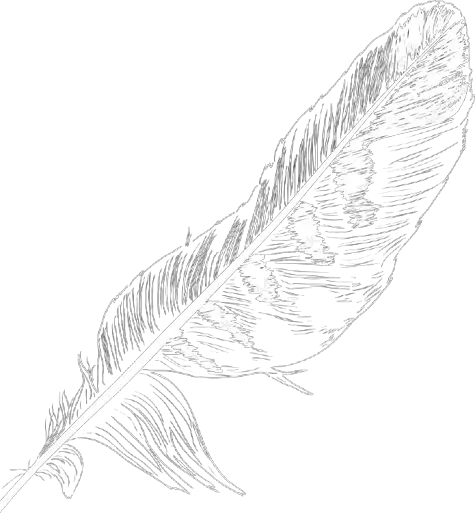Kaushal Naik

About me
Castle Light, born Kaushal Naik, is a poet and classical musician of the Indian diaspora, presently residing in Dublin, where he pursues his studies in Economics and Management.
His works have appeared or are forthcoming in The Hindu, Plume, The Wire, Acumen, The Stinging Fly, Cyphers, and sundry other distinguished journals. A young yet decidedly old-fashioned poet, he was nurtured in the steel town of Jamshedpur, Jharkhand, where he was schooled in the refinements of Western etiquette and the loftier ideals of life. A devoted member of the Rotary, he engages diligently in endeavours that render service to the community. A staunch steward of nature, he practises the delicate art of bonsai and upholds the principles of sustainable living. Recipient of numerous honours in a variety of literary competitions, he is at present working on his debut volume of poetry.
A lady once wandered through the sandalwood grove,
and asked the farmer with a puzzled brow,
"It’s sandalwood… yet no fragrance flows?"
The farmer, gentle, lowered his plough—
"Maaji, such words you should not say,
for sandalwood holds its secret way.
Alive, it gives us shelter and shade,
but when it falls, its perfume is made…
Just like a Maa—while here, she shields,
and when she’s gone, her love still yields."
A sneak-peek into my life
ASISC State Level Declamation Champion 2019 (Senior category)
: Issued by the British Council
IMUN Champion 2020 – ILO wing ( Best Delegate )
WINNER of the Frank Anthony Memorial Public Speaking Competition
: Issued by the All-India Anglo-Indian Association
Winner of the Pan India Albert Borrow Creative Writing Competition
: Issued by the ISC Council
Secretary General District – 3192 Rotary Club Of Bangalore Oasis
: Rotary International
Music, to me, is not merely an art but a living archive of emotion, intellect, and history — a companion through every season of life. I have grown up in the company of voices and melodies that have shaped my sensibilities: the theatrical genius of Queen, the electric brilliance of Michael Jackson, the timeless charm of ABBA, the golden-era grace of Doris Day, and the unmistakable charisma of Elvis Presley. My heart has been equally captivated by the grandeur of the operatic stage — Maria Callas, Luciano Pavarotti, Mario Lanza, Patricia Janečková, and José Carreras have all, in their own ways, taught me the poetry of the human voice.
My admiration extends deeply to the great composers — Verdi’s operatic splendour, Debussy’s luminous impressionism, Mozart’s perfect symmetry, Beethoven’s tempestuous depth, Paganini’s devilish virtuosity, J.S. Bach’s architectural genius, Johann Strauss II’s effervescent waltzes, and Tchaikovsky’s sweeping lyricism. These masters do not merely fill the air with notes; they construct worlds in which the soul may wander and the heart may rest.
In the realm of performers, I remain the most ardent admirer of Victor Borge’s wit and pianistic elegance, Lang Lang’s unyielding passion, and Hilary Hahn’s crystalline artistry. They remind me that music is as much about spirit as it is about sound — a dialogue between past and present, between discipline and abandon.
Literature has always been my sanctuary — a place where words are not merely written but breathe, ache, and sing. My heart belongs to voices that have shaped my inner world, each offering a distinct window into the human condition. Sarojini Naidu’s lyrical grace and patriotic fervour, Rabindranath Tagore’s spiritual depth and serene wisdom, and Ruskin Bond’s quiet, tender sketches of life in the hills have all taught me the beauty of simplicity and truth.
From the Western canon, I draw strength and wonder from William Wordsworth’s devotion to nature’s restorative power, Thomas Wyatt and Henry Howard’s courtly elegance, Edmund Spenser’s rich allegories, and Lord Byron’s romanticism. The immortal genius of William Shakespeare, with his unmatched insight into love, ambition, and the frailty of man, continues to astound me — a well I return to endlessly. These voices, though separated by centuries and continents, share a common gift: they illuminate the invisible, articulate the inarticulate, and make the fleeting moments of life endure on the page. They remind me that literature is not just an art — it is a mirror, a map, and, often, a quiet revolution.









